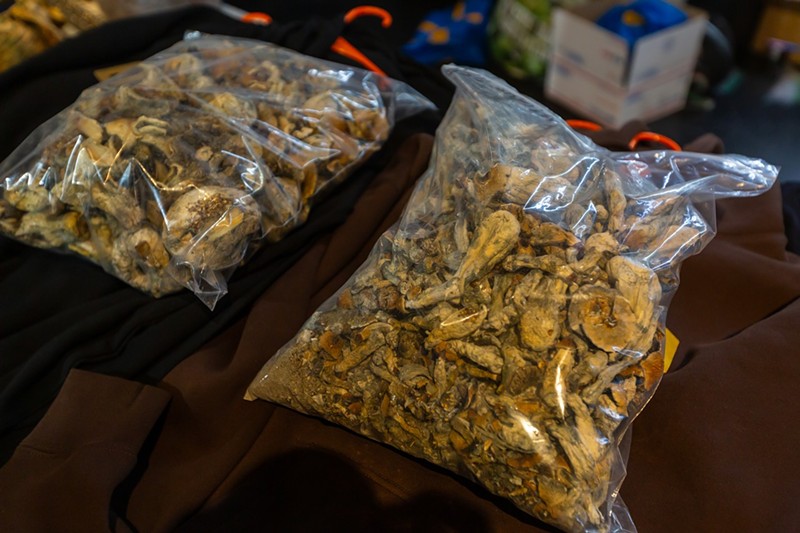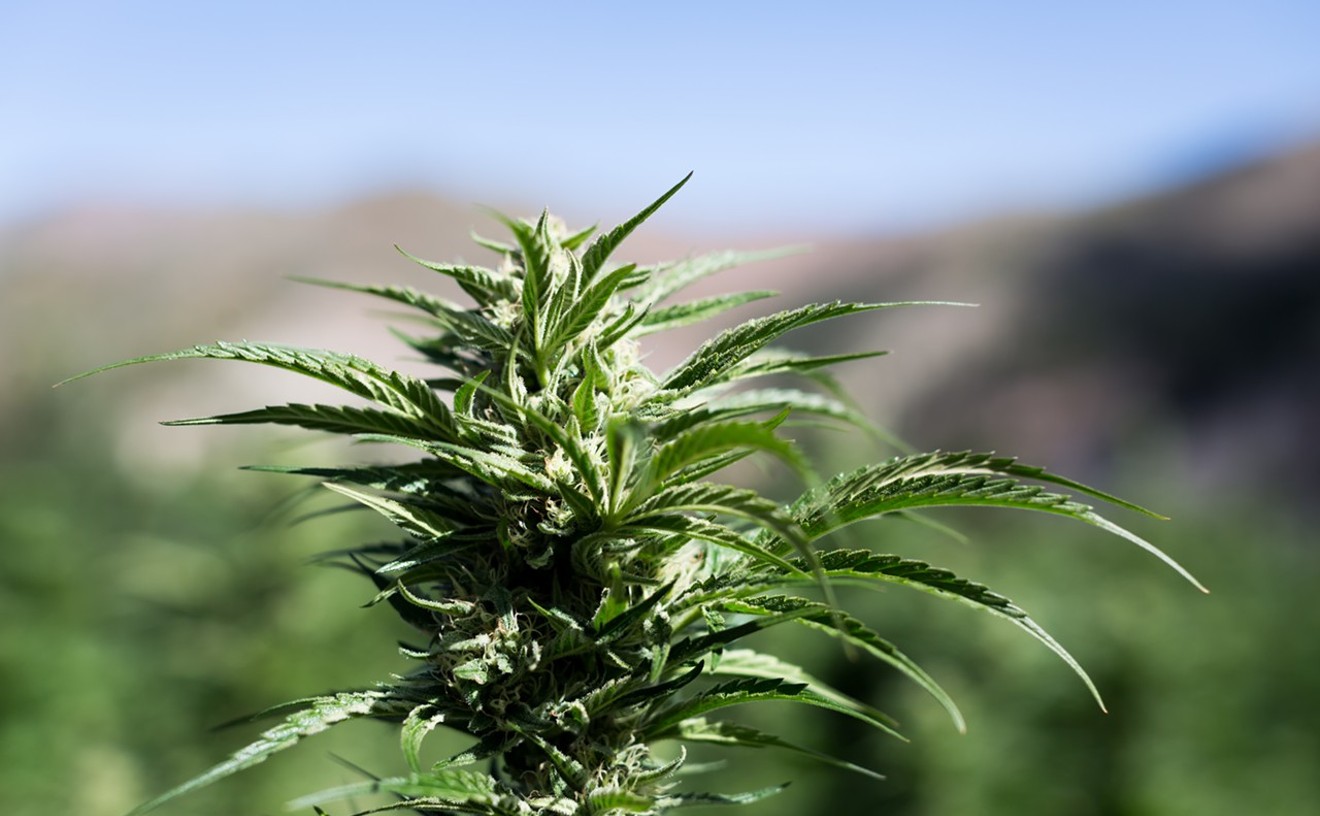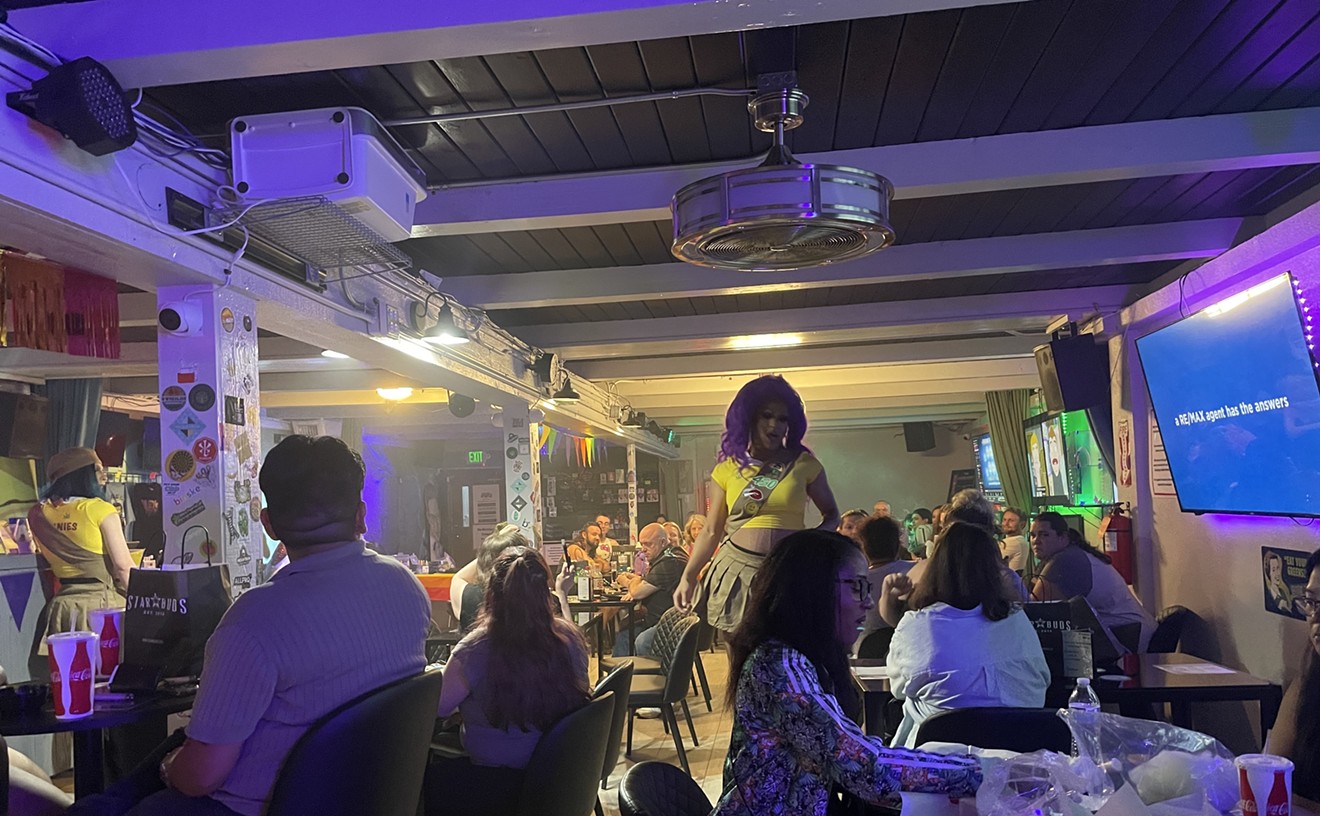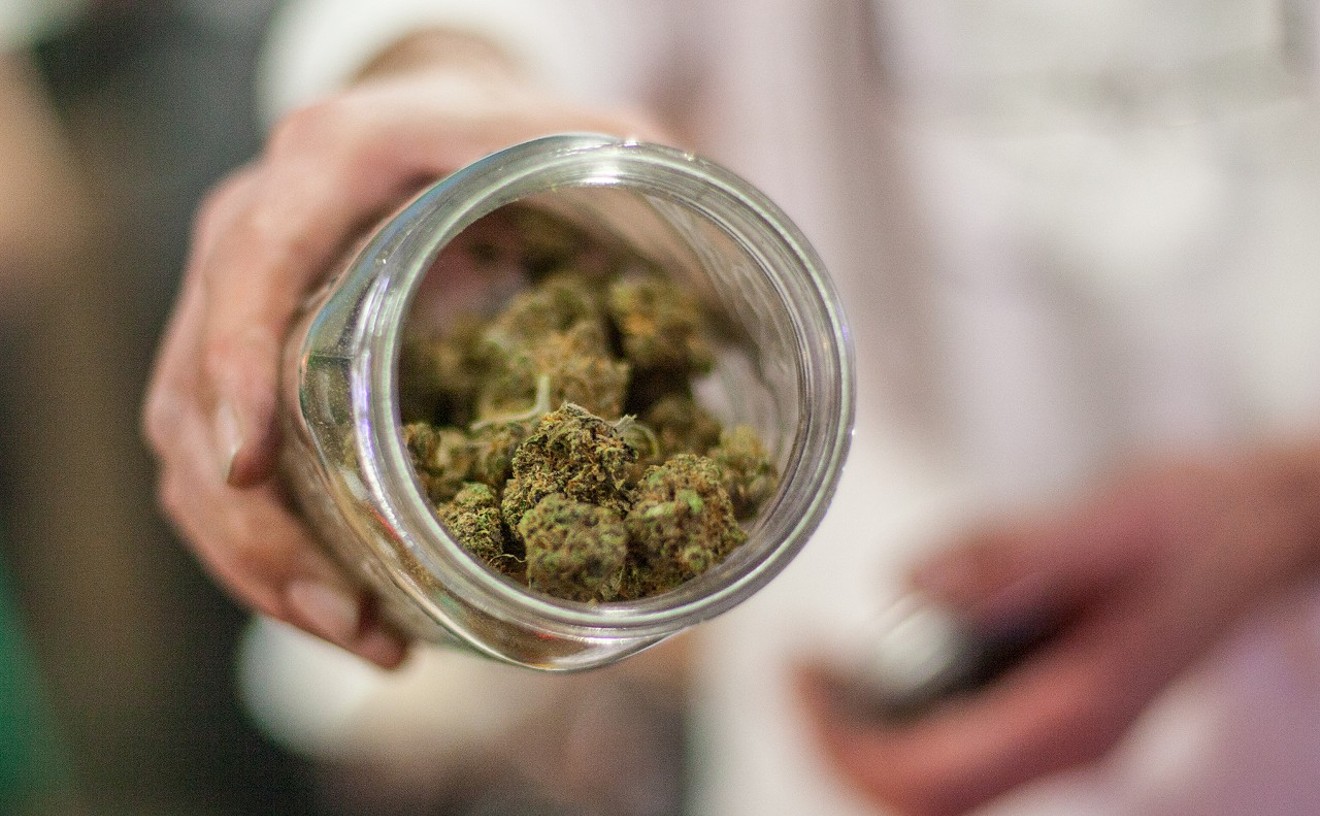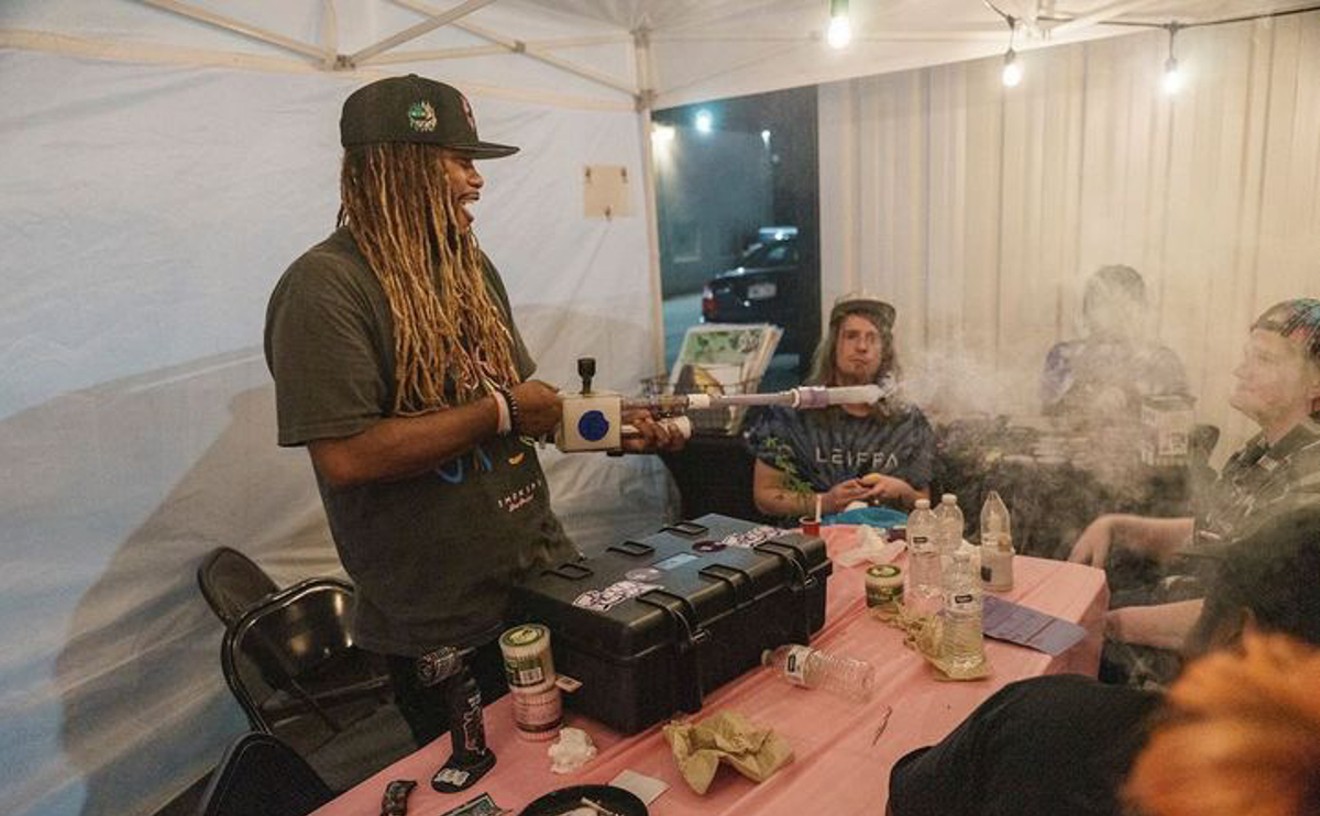Once approved, the 120-page set of rules will serve as the foundation for Colorado's medical magic mushroom industry. The newly created Colorado Natural Medicine Division must finalize mushroom industry regulations by October, with mushroom grower and healing center applications available for submission on December 31.
While natural medicine stakeholders generally approve of the proposed rules, a handful of the proposals have come in for criticism, as NMD executive director Dominque Mendiola acknowledges.
"This is just the first phase of our implementation, certainly with a lot more work ahead," she said during a day-long meeting with psilocybin stakeholders on July 25. "What we present today remains subject to change."
State officials have drawn from months of stakeholder meetings, collaboration with the state's Natural Medicine Advisory Board, and examples of Oregon psilocybin regulations as they prepare for Colorado to become the second state in the country to offer magic mushroom facilitation at licensed facilities.
But July 25 was the last day the public could chime in, and ring the bell they did.
Many of the areas of contention echoed marijuana industry discussions regarding packaging, edibles, extraction and the introduction of publicly traded companies.
Just One Psilocybin Strain
There are dozens, if not hundreds, of species of psilocybin mushrooms, but only one will be allowed in Colorado's regulated system for now: psilocybe cubensis. Common forms of psilocybe cubensis include Golden Teacher, Hillbilly, Penis Envy and a handful of others, but growers and facilitators had hoped for more options.Although the proposed limit isn't quite like only allowing one strain of cannabis to be sold at dispensaries, advocates argue that Colorado's mushroom program will be deprived of other beneficial psilocybin mushroom species such as psilocybe natalensis and panaeolus cyanescens, which have shown potential in treating inflammation and pain.
"There are many cannabis strains that provide very specific relief for certain symptoms, and it's the same thing for mushrooms," psilocybin lab analyst Noah Novello tells Westword. "Some strains, like psilocybe natalensis, may have anti-inflammatory properties."
The NMD is open to expanding the program to more species after further "evaluation," according to the division, but officials felt comfortable going forward with only psilocybe cubensis as a species of broad use and benefit. Oregon's medical psilocybin framework only allows psilocybe cubesis, as well.
Outdoor Mushroom Administration Areas
The use of natural medicines in an outdoor setting is an important aspect of spiritual and ceremonial use, and some facilitators and therapists believe the outdoors are helpful in the licensed space, too. Under the NMD's final draft, healing centers will be allowed outside or have outdoor space, as long as there are "boundaries" and "measures to mitigate risks" to participants and to ensure authorized access. Local governments are allowed to enact time, place and manner restrictions on psilocybin facilitation, however, which could limit outdoor spaces in certain towns or counties.Psilocybin Edibles Allowed, but Not Extractions
Psilocybin edibles including chocolates, confections, tinctures, teas and oral capsules would be allowed at Colorado healing centers under the NMD's proposed rules, but extractions would be banned. According to NMD officials, adding extractions to the regulatory scheme would be too complicated for the framework surrounding issues such as lab testing and tracking.Psilocybin cultivators, lab operators and business owners didn't buy the NMD's explanation, however.
"It does not increase in complexity, it does not increase in costs," psilocybin business owner Michael Briggs told NMD officials and natural medicine stakeholder on July 25. According to Briggs, testing and many other regulatory processes for raw mushrooms and extractions are the same.
Psilocybin extracts are significantly more potent than raw mushrooms, but Novello says extracts have a faster onset and shorter duration, and are easier to homogenize. A psilocybin extraction would generally cause "very little to no nausea and is much easier for our body to digest," he adds.
The NMD's final draft does allow for ground mushroom powder, which would be used for edible infusion. According to Novello, powder isn't an extraction, but "simply mushrooms that have been put into a grinder. It is not a form of extract or concentrate."
Pushback Against Psilocybin Edibles
Natural medicine officials have been open to psilocybin edibles since the creation of the NMD last year, and future rules surrounding psilocybin chocolates, gummies and teas have been a regular topic during state's current rulemaking discussions. But as the psychedelics industry launch nears, groups that oppose the commercialization of cannabis and psilocybin have come out vocally against any form of psilocybin chocolate, gummies or any other form of edible that could be appealing to children.Blue Rising Colorado and One Chance to Grow Up both spoke at the July 25 meeting in favor of banning the majority of edibles outside of capsules. The two groups have pushed against similar efforts by Colorado's cannabis industry in the past.
Retail sales of psilocybin are banned and guests cannot leave licensed healing centers with any mushrooms or products in hand, but Blue Rising's Rebecca Venturella believes it's only a matter of time before that changes. "We would be naive to think commercialization is not in Colorado's future," she told stakeholders and NMD officials. "If the adult does not like the tastes of [mushrooms], they should look for another option to chase it with."
Several psilocybin advocates pushed back against calls to ban edibles, arguing that raw mushrooms are an acquired taste and that adding forms of consumption would help more people consider and benefit from treatment.
"This is a regulated market. A lot of these products are going to be available much more cheaply on the personal-use side. I don't think diversion is going to be very high here," psychedelics attorney Barine Majewska said. "A lot of the reason we're looking for a broader scope of product is not just because it's bold."
According to Majewska, 'the form of the product, their ability to make a choice in what product is administered to them, their sense of whether it's a medical product or a pharmaceutical product" impacts patients and "how they respond to the journey."
Despite opposition, psilocybin edibles are likely to make the cut when the final rules are published in October.
"Cacao" or "Chocolate?"
Although a couple of youth protection groups objected, the NMD is poised to allow psilocybin chocolates — but there is a growing push to not call them "chocolate" at all. In a move intended to honor and align with indigenous cultures, a handful of stakeholders suggested that chocolate psilocybin edibles be officially referred to as "cacao" by the NMD and licensees. Blue Rising was the only group that vocally objected to the idea.
No Publicly Traded Companies
It took five years for Colorado's recreational marijuana industry to open up to out-of-state ownership and publicly traded companies, and NMD officials — almost all of whom oversee marijuana regulations, as well — want to take a similar approach with psilocybin. Calling it an "operability issue," Mendiola said she was unsure if allowing publicly traded companies to own natural medicine business licenses in Colorado would comply with the state law."There's no question it will introduce complexities to our rules and processes that will drive higher fees," she said. However, Mendiola added that there is "an intent to revisit" that rule down the road.
No Lab Tests for Homegrown Mushrooms
As with marijuana, licensed testing labs likely won't be able to analyze homegrown mushrooms or products made outside of the regulatory structure. Both testing labs and psilocybin business representatives were against the idea of blocking out homegrowers and unlicensed products, but NMD officials remained steadfast."I can't see a downside to that," Majewska said of allowing unlicensed products to be tested, "and I think as many opportunities we give the community to test their products, the better off we will be."
Small Growing Operations
The NMD is proposing relatively strict rules on the size of licensed mushroom cultivations, limiting the legal amount of dried mushroom possession to five kilograms, or about 11 pounds, for standard cultivations. That equals roughly 1,000 packages containing five grams of mushrooms. There will also be a micro-cultivation license allowing 750 grams of dried mushrooms. According to Mendiola, cultivators can increase the limit in the near future "if the licensee can demonstrate demand.""This is going to create very small batch sizes, which means the cost associated with testing each package increases significantly," Novello argues. "Cultivators can ask to grow more if they can prove the demand. Who knows how high the demand will be if it proves to be too expensive?"
Mental Health Offices Can Participate, Too
The NMD's rules also allow for therapists and mental health clinics located in more traditional office spaces to provide psilocybin facilitation without having to change locations or "completely revamp their space," according to Healing Advocacy Fund Colorado director Tasia Poinsatte.Administering psilocybin still requires a license and inspected space, but allowing co-location of traditional mental health services and psillocybin therapy reduces the regulatory burden, Poinsatte adds.

